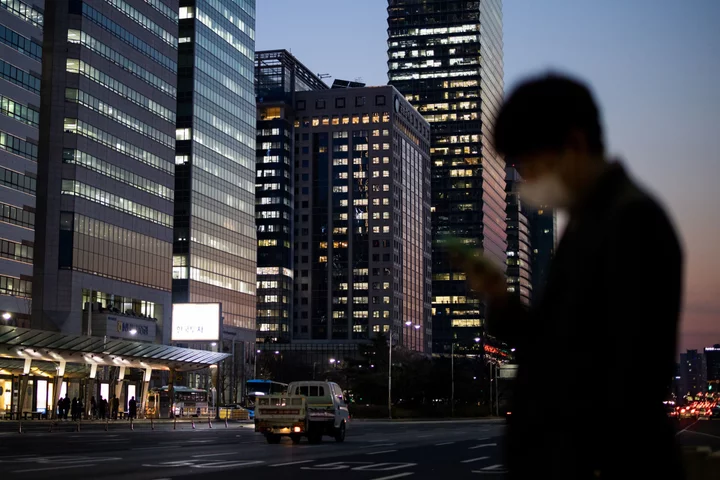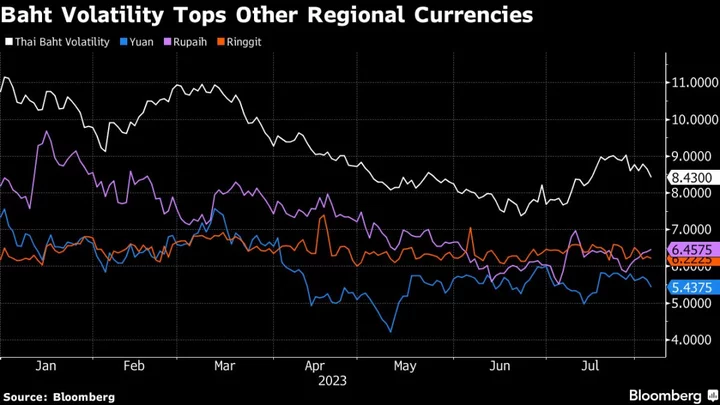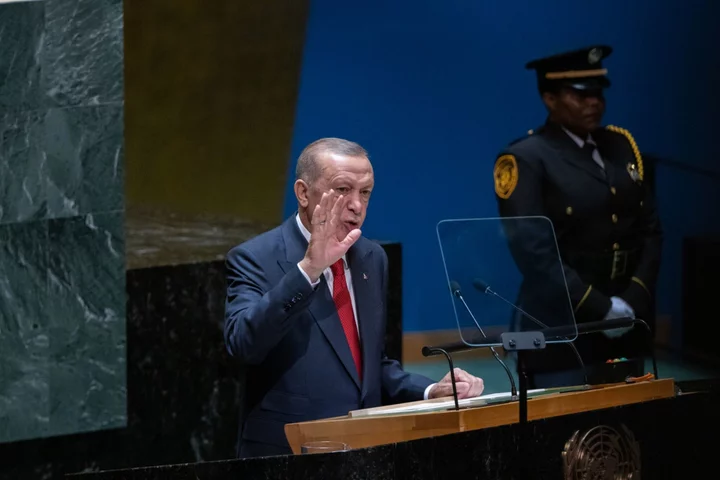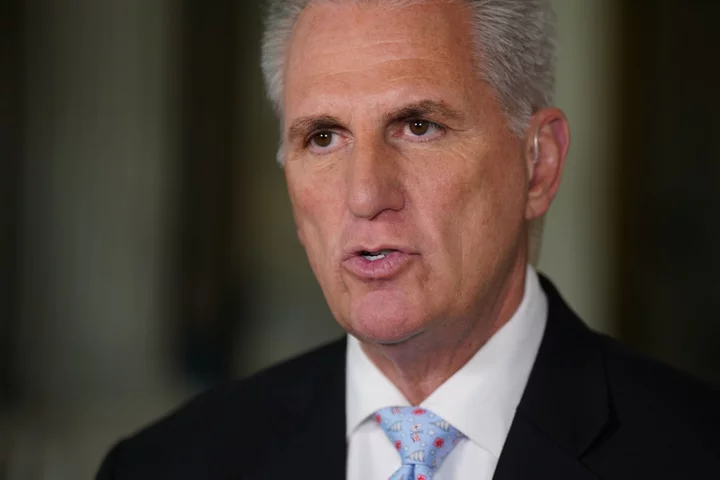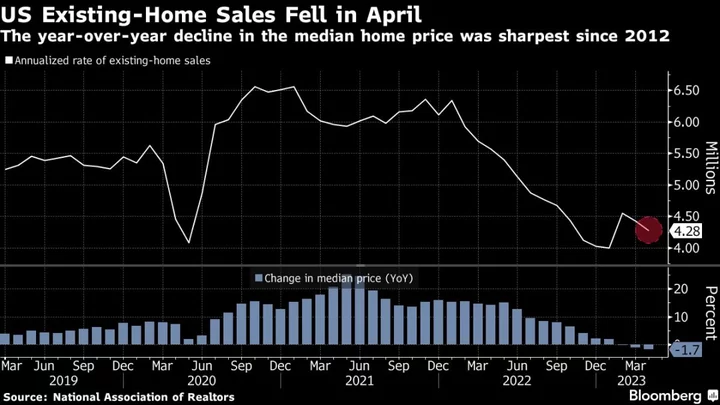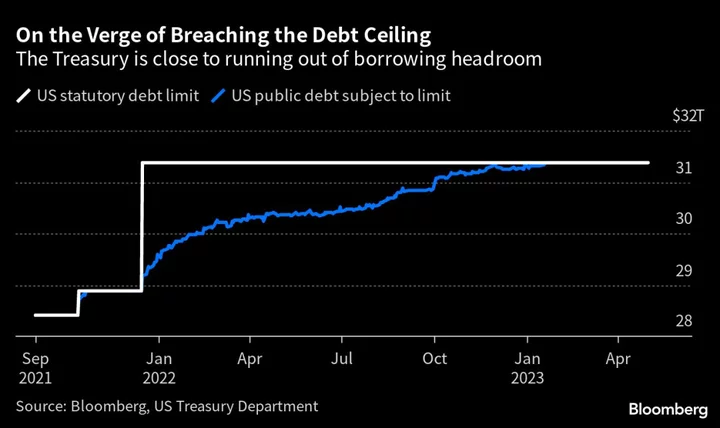Global index provider MSCI Inc. decided to retain South Korea on its list of emerging markets following an annual review, once again thwarting the nation’s bid for an upgrade to the coveted developed-market status.
South Korea will stay in the 24-member MSCI Emerging Markets Index, the firm said in its annual market classification announcement Thursday. The decision was widely expected after MSCI earlier this month said South Korea still faced nine market accessibility issues, flagging concerns similar to 2022’s review.
The index provider said that it welcomes South Korea’s proposed measures aimed at improving accessibility to international investors, and it will be monitoring their implementation and effectiveness.
“We are closely monitoring the challenges observed in select emerging and frontier markets,” Dimitris Melas, chairman of the MSCI Index Policy Committee said in the release. “Despite these conditions, certain markets, such as Korea, have proposed plans to enhance accessibility for foreign investors. Once in effect, these efforts will be subject to consultation with market participants to assess their impact and effectiveness.”
South Korea’s government plans to “smoothly” implement foreign exchange and capital markets reform measures within the deadlines announced previously so that global investors can see changes in investing in the nation, the Financial Services Commission said in a text message, in response to an inquiry by Bloomberg News on MSCI’s decision.
The government has pledged a series of reforms to lower hurdles for foreign investors and attract more overseas flows in an attempt to address accessibility concerns. While Asia’s fourth-largest economy is considered a developed market by other index service providers such as FTSE Russell and S&P Dow Jones Indices, MSCI’s decision is seen as important as it has the biggest market share in the business.
READ: MSCI Upgrade Bid Risks Backfiring for South Korean Stock Market
“There will be little impact on the market” because the move was expected, Lee Young Jae, senior investment manager at Pictet Asset Management Ltd., said before the announcement. “It’s a matter of time, South Korea will get upgraded” at some stage in the future, he said.
The use of exchange data was another sticking point that was not addressed by the Korean authorities, MSCI said in the statement. The Korean Stock Exchange responded Friday that it’s in talks about this issue with the index service provider, according to an exchange spokesperson.
The potential upgrade is a big enough deal for the nation’s $1.9 trillion equities market that it has caught the attention of President Yoon Suk Yeol, who said earlier that his priority was to address “outdated regulations” and better protect minority shareholders.
In 2009, MSCI added South Korea to the developed-markets watchlist, a stepping stone toward an actual entry into the club of mature markets. It then decided to remove the Asian country from that list in 2014 due to issues such as limited currency-trading hours. Trading in the won is currently restricted to local business hours, and foreign investors aren’t allowed to trade the currency offshore.
“I would be surprised if MSCI does move” South Korea to the DM list, Jae S. Yoon, chief investment officer at New York Life Investment Management, said before the announcement. “I know this time that the hedging issue of the currency was one issue that was raised and not addressed.”
While regulators are now looking to expand trading of the won into London hours — thereby allowing more offshore firms to participate directly in the local interbank currency market — the changes will not take effect until late 2024. Authorities have also vowed to improve other processes such as pre-registration requirements for foreign investors into equities and rules on dividend payouts.
Such moves “suggest a higher likelihood of watchlist inclusion next year,” Goldman Sachs Group Inc. analysts including John Kwon wrote in a note. “Compared to last year, there have been tangible policy actions announced by the Korean government, which MSCI has also recognized.”
In its market accessibility review released earlier in June, MSCI said that measures announced by Korea’s government to address some of the worries “will be thoroughly evaluated with international institutional investors” once fully implemented.
There is a high chance that South Korea will be added to the DM watchlist in 2024 when some market reform measures take effect, said Kim Jungyoon, an analyst at Daishin Securities Co. in Seoul.
--With assistance from Alexandra Semenova and Abhishek Vishnoi.
(Updates with government response in fifth paragraph)

